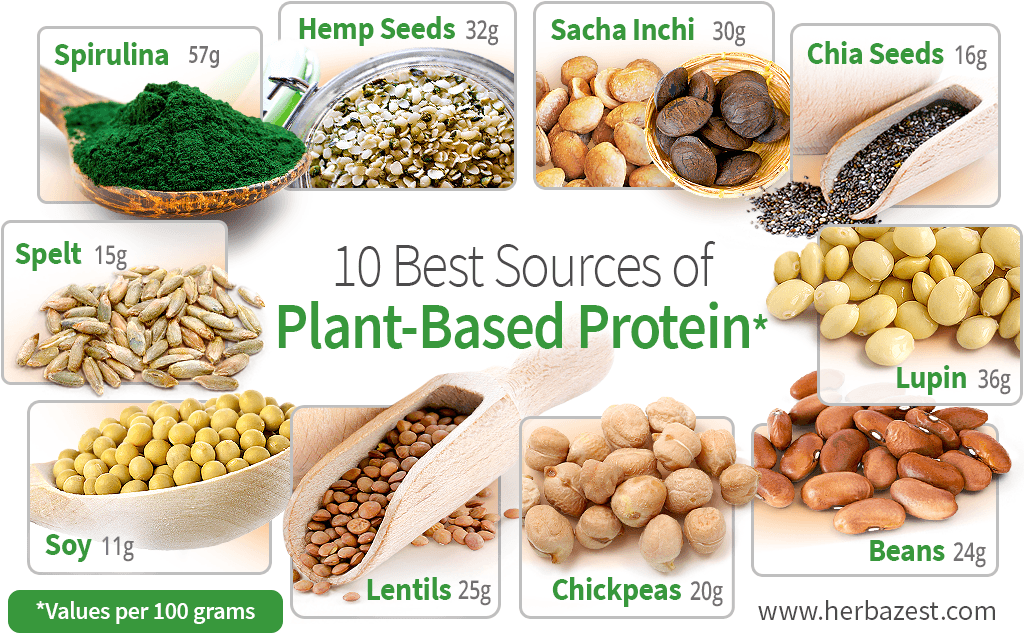Plant-based diets are gaining momentum, offering a fresh perspective on nutrition and sustainability. With protein-packed options like lentils, quinoa, almonds, and tofu, they deliver all the essential nutrients your body needs to thrive—without relying on meat. Rich in fibre, vitamins, and minerals, these foods support heart health, boost immunity, and reduce the risk of chronic diseases. Beyond personal well-being, choosing plant-based proteins contributes to a greener planet by lowering carbon footprints and conserving vital resources. Discover how embracing plant-powered eating can transform both your health and the environment for the better
Have you ever wondered why people are increasingly embracing plant-based diets? It seems like everywhere you turn, there are new documentaries, books, and restaurants promoting the benefits of a plant-based lifestyle. The truth is, there are numerous reasons why humans don’t actually need meat and can thrive on plant-based proteins. In this blog post, we will delve into the fascinating world of plant-based proteins and explore their incredible potential. Get ready to discover the protein powerhouse that lies within the plant kingdom.
The Misconception: Meat as the Sole Source of Protein
When it comes to protein, many people believe that meat is the only reliable source. But let’s debunk this common misconception. The truth is, you can obtain all the protein you need from plant-based sources. The recommended daily intake of protein varies depending on factors such as age, sex, and activity levels. However, for most adults, the average daily intake is around 50 grams. So, let’s explore how we can fulfill this requirement without relying on animal products.

The Power of Plant-Based Proteins
The plant kingdom offers us a plethora of protein-rich options that are not only delicious but also incredibly nutritious. Legumes, such as beans, lentils, and chickpeas, are excellent sources of protein. A cup of cooked lentils, for example, provides approximately 18 grams of protein. Whole grains, like quinoa, brown rice, and oats, are also packed with protein. Additionally, nuts and seeds, such as almonds, chia seeds, and hemp seeds, offer a significant protein punch. These plant-based proteins are not only rich in amino acids but also provide essential fiber, vitamins, and minerals.
For those concerned about replacing animal-based proteins, fear not! There are wonderful plant-based alternatives available. Tofu, tempeh, and seitan are great options for those seeking alternatives to meat-based dishes. They not only provide protein but also allow for a variety of flavors and textures that can be adapted to suit any recipe.
Overcoming Nutritional Concerns
One concern often raised regarding plant-based protein is the limited presence of certain essential amino acids found in meat protein. However, it is important to understand that while individual plant-based protein sources may lack certain amino acids, they can be easily complemented by combining different sources. This combination creates a complete amino acid profile. For example, legumes are typically low in methionine but high in lysine, while grains lack lysine but contain methionine. By combining legumes and grains in the same meal, we create a complete amino acid profile, comparable to that of meat. So, worry not about missing out on those essential amino acids on a plant-based diet!
It’s worth mentioning that a well-balanced plant-based diet provides an array of nutrients beyond just protein. Fruits, vegetables, whole grains, and plant-based fats contribute to overall health and well-being. By including a variety of plant-based protein sources, we can ensure we are getting all the nutrients our bodies need to thrive.
Health Benefits of Plant-Based Proteins
Scientific research has consistently shown that a plant-based diet can have significant health benefits. Numerous studies indicate that those who consume predominantly plant-based diets tend to have lower risks of chronic diseases such as heart disease, obesity, and certain types of cancer. Plant-based proteins are generally lower in saturated fats and cholesterol, making them heart-healthy choices. Moreover, the abundance of fiber and antioxidants found in plant-based proteins promotes digestive health and strengthens the immune system. By embracing plant-based proteins, we can powerfully enhance our well-being.
Environmental Impact: Why Plant-Based Proteins Matter
While health benefits are important, we should also consider the impact our food choices have on the planet. The environmental consequences of meat production are significant. Deforestation, greenhouse gas emissions, and water pollution are just a few of the detrimental effects associated with the meat industry. By choosing plant-based proteins, we can actively reduce our carbon footprint and contribute to a more sustainable future.
Plant-based proteins require fewer resources, such as land and water, to produce, making them an environmentally friendly choice. By shifting our diets away from animal products and towards plant-based proteins, we can help mitigate climate change and preserve our precious ecosystems for future generations.
Making the Transition to a Plant-Based Diet
If you’re intrigued by the potential of plant-based proteins and are considering incorporating them into your diet, here are a few practical tips to help you get started:
- Start gradually: Begin by replacing one or two meat-based meals a week with plant-based alternatives. This gives you a chance to experiment with different flavors and recipes without feeling overwhelmed.
- Discover new recipes: Explore the vast array of plant-based recipes available online or invest in a plant-based cookbook. You’ll be amazed by the diversity and creativity that plant-based cooking offers.
- Find plant-based protein sources you enjoy: Experiment with different legumes, whole grains, nuts, and seeds to find your preferred sources of plant-based protein. Everyone has different tastes and textures they prefer, so find what works best for you.
- Join a supportive community: Connect with like-minded individuals who are also interested in plant-based living. Online communities, cooking classes, or local meetups can provide invaluable support and inspiration.
Remember, transitioning to a plant-based diet is a journey, and it’s okay to take it at your own pace. Every step you take towards incorporating more plant-based proteins into your diet brings you closer to a healthier, more sustainable lifestyle.
Conclusion
The need for meat as the primary source of protein is a misleading notion. Plant-based proteins offer a multitude of nutrients, health benefits, and environmental advantages. By embracing the protein powerhouse within the plant kingdom, we can nourish our bodies and contribute to a more sustainable planet. So, next time you sit down for a meal, consider the vast array of plant-based delights waiting to be explored, and unlock the endless possibilities of plant-based proteins.
4.6/5 - (22 votes)



